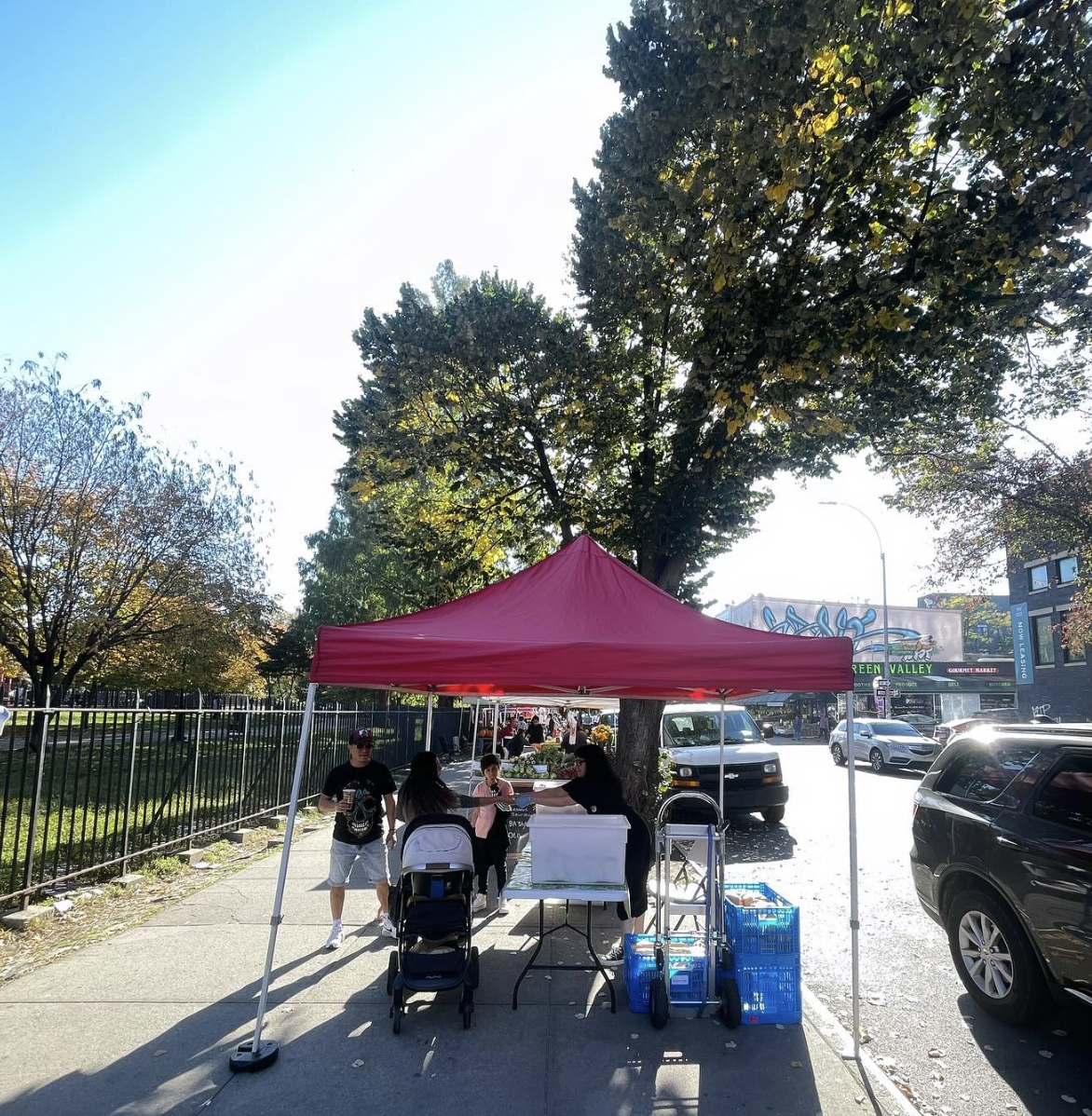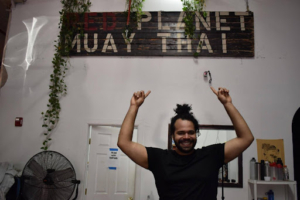Tented stalls line the southern edge of Maria Hernandez Park. Crates stocked full of seasonal produce, an abundance of fall-colored squashes, apples, and carrots are arranged neatly.
Started by Sean-Michael Fleming and Travis Tench in 2009 as part of a local, since-shuttered nonprofit called EcoStation:NY, their farmer’s market was taken over and renamed by the nonprofit RiseBoro group seven years ago. Trained initially by Fleming, the business claims it provides a platform for businesses run by underrepresented communities in the greater city, like migrants, BiPOC, and non-English speakers.
Fleming, who nowadays teaches gardening and culinary classes at RiseBoro, tells me that he’s “grateful that RiseBoro picked up the reins of the farmers markets and has made new forays into urban farming and food justice.” He also said that independent farmers had been coming to the corner of Knickerbocker and Starr for many years before any local groups showed up, making it long a fixture of the Bushwick landscape.
These days, the market operates every Saturday from 8am to 3pm at Maria Hernandez Park, though a recent slew of rainy weekends during the fall has cut down on its numbers lately. Still, even on a rainy afternoon, a sizable group of customers can be seen congregating with umbrellas, ducking under tents.
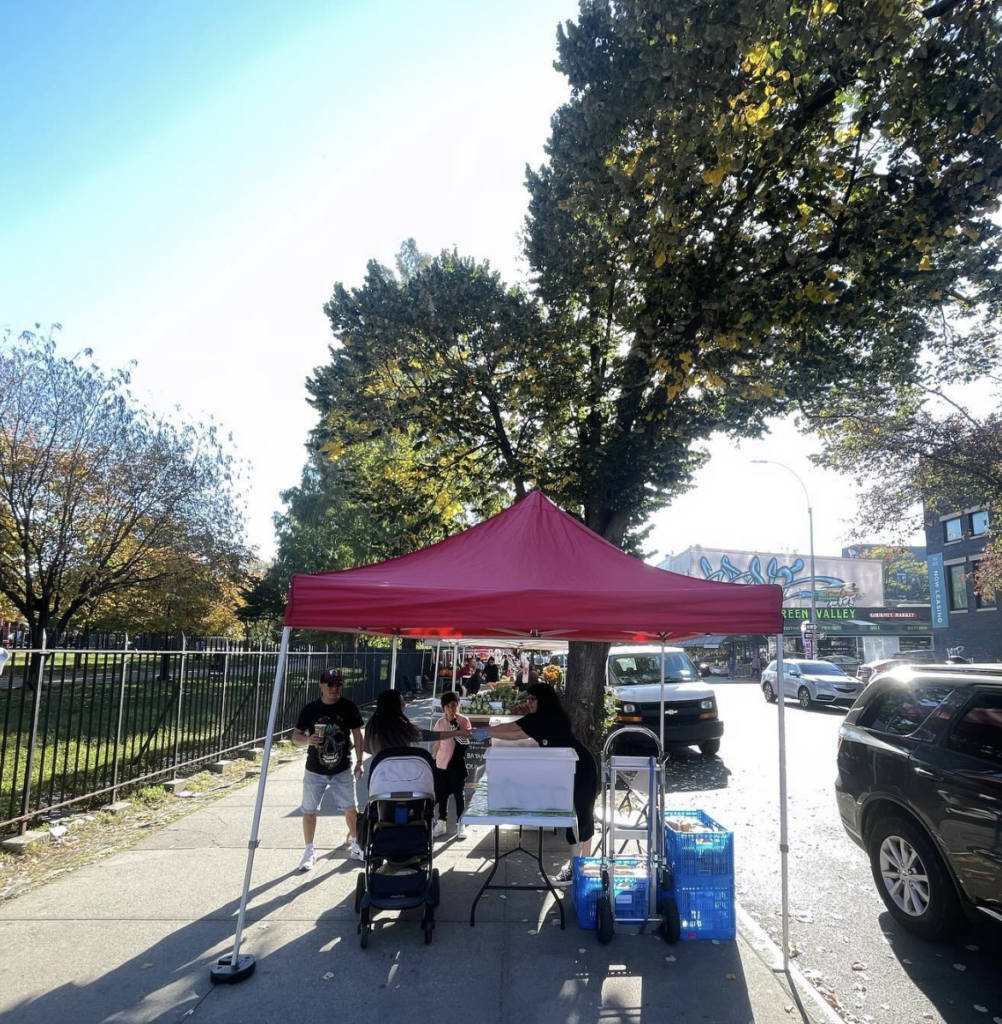
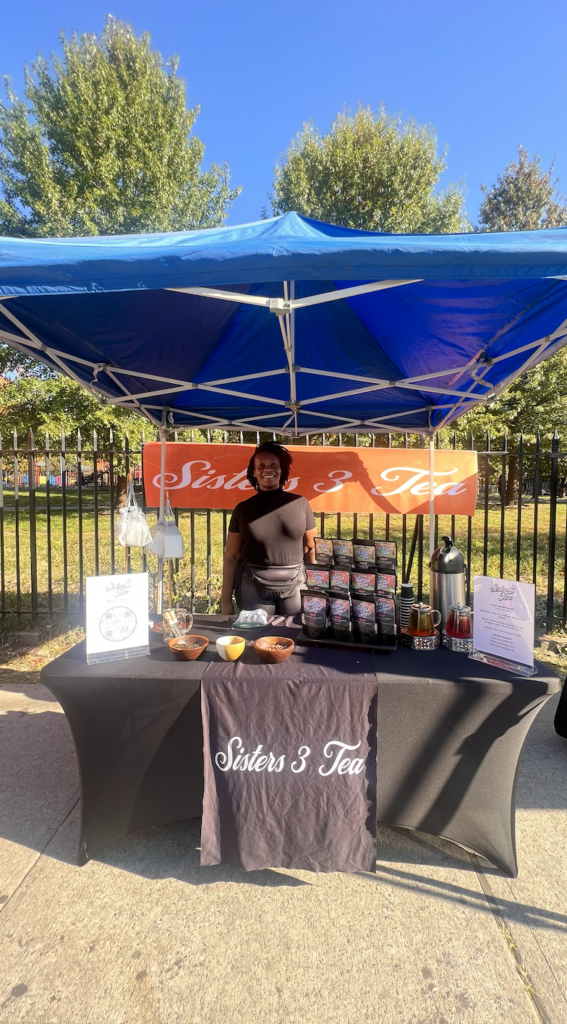
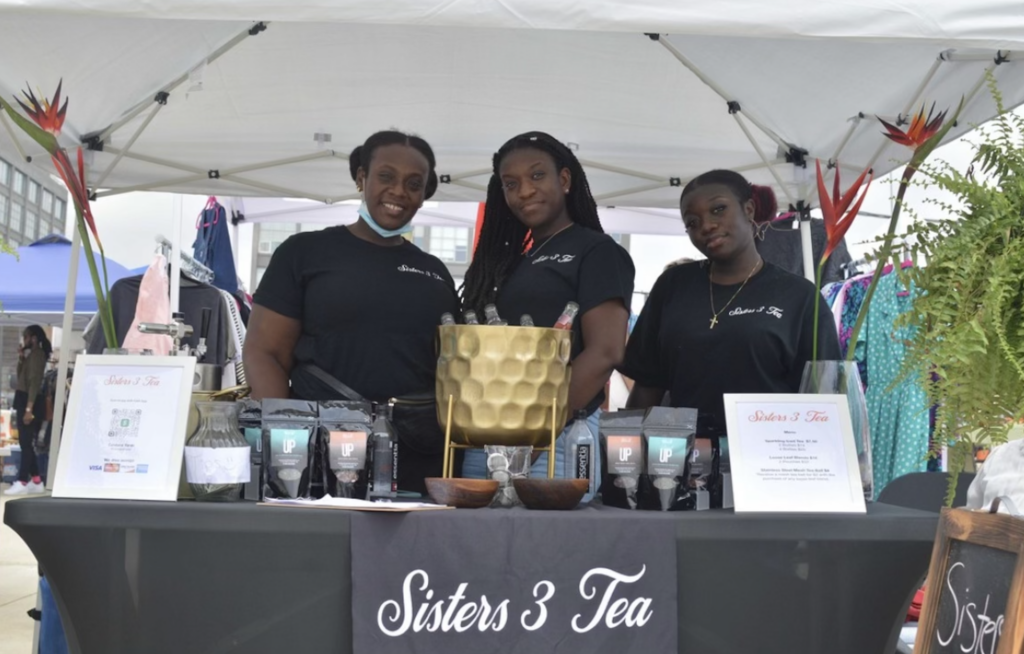
According to NYC’s Population FactFinder, 51% of Bushwick residents identify as Hispanic, and according to the US Census, 31.4% of Bushwick residents speak English “less than very well.” The market gives the non-English-fluent population a way to directly access farm-fresh produce close to their homes; language barriers at most other farmers markets in the city often make that access impossible.
At one stall, an older couple named Ruperto and Rosbelia Pavia run their booth, fittingly called the Pavia Family Farm; they could be heard chatting in rapid-fire Spanish with several customers, while two younger boys, grandsons, stood at their sides. They run their titular farm in Hazlet, New Jersey and say their food is chemical and GMO-free.
“We have a natural obligation to the crops,” Jose Gil, the older grandson, told me. “We just allow them to grow, and we bring them here when they’re done.”
For the Pavias, the marker has been a blessing.
“The opportunity my grandpa was given, to bring his crops to New York and share them with people, it makes him so happy,” said Gil. “We get a lot of locals here,” he added.
As the customers putter around the market with foldable grocery carts stocked full of produce, a popular stall shows a colorful array of black, green, and fruit teas and blends, inspired by traditionally Caribbean and Barbadian flavors.
At Sisters 3 Tea, Christine Yarde and her two sisters sell tea. Yarde and her sisters started out at the market a few years ago when they signed up for an academy that the RiseBoro group runs.
“We want to bring healthier options to our community, which is other people from the Caribbean and those in Flatbush and Central Brooklyn,” Yarde told me.
“We’ve been here a few years now, and people come back and remember and repurchase from us,” she said. “It’s really galvanizing.”
Emanuel Ruffler, a baker at a solar-powered micro bakery called Starrlight Pizza, echoes the sentiment. Ruffler’s stall is decorated with an assortment of handmade fermented loaves, each wrapped up in rustic brown paper, offering samples to prospective customers who pass by.
“The market is our home base, our roots, a direct connection to our community,” he said.
Starrlight Pizza sells their pizzas across Brooklyn and Queens and ships their breads to various stores across all five boroughs.
“Selling at the market means connecting with shoppers and community members as much as possible,” said Ruffler. Through the market, Ruffler says the business has gained enough name recognition to open up a ghost kitchen, deliver pizzas throughout Brooklyn and Queens and sell their slices in several local nightlife spots like Kato Sake Works.
“It was actually at the market that we found out about the Community Solar Project in Queens that now powers our bakery,” said Ruffler. “Even that important ingredient in our baked goods, the heat, the starlight in our name—we found it at the market.”
Top image taken from Starrlight Pizza’s Instagram page.
For more news, sign up for Bushwick Daily’s newsletter.
Join the fight to save local journalism by becoming a paid subscriber
